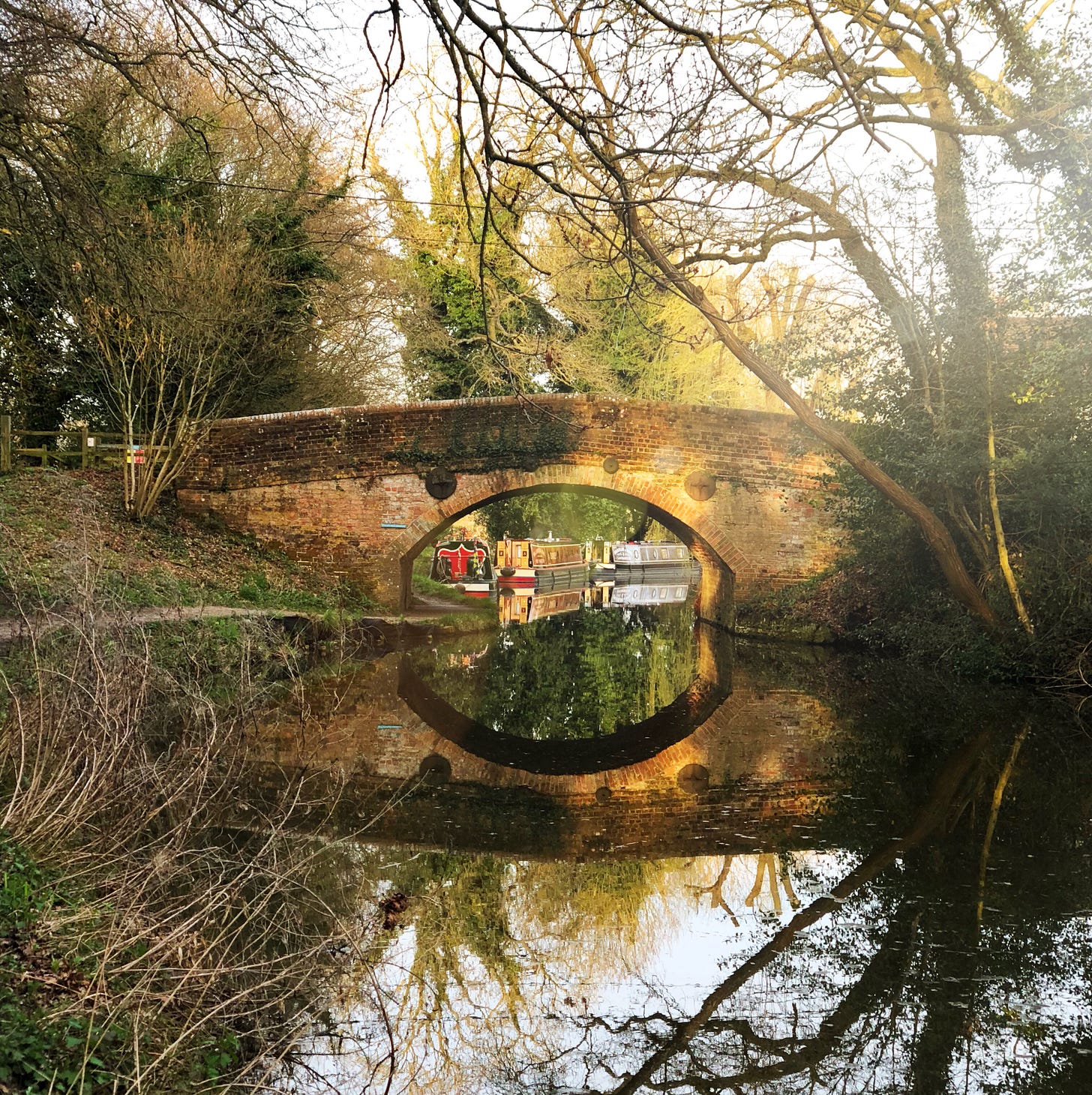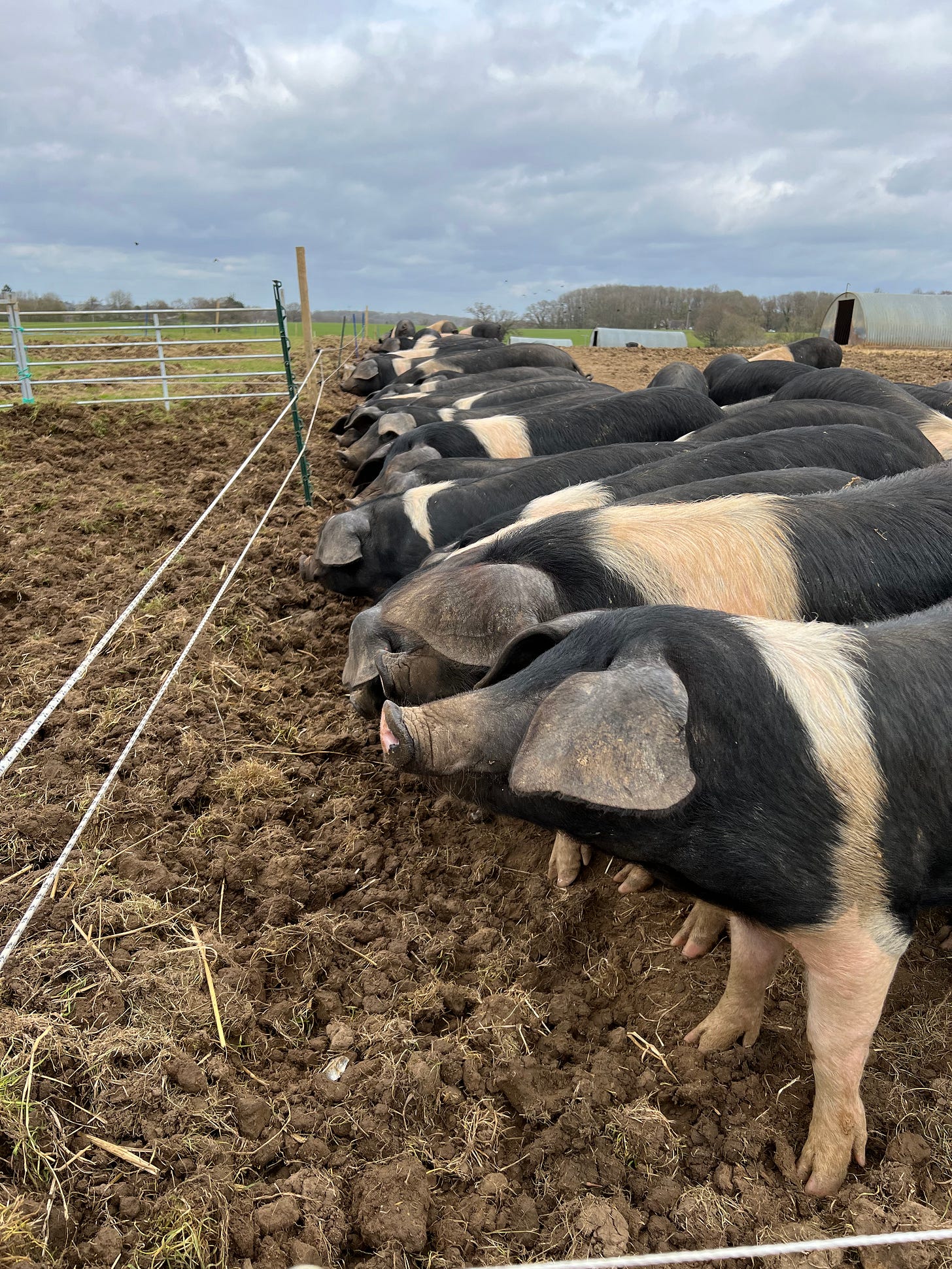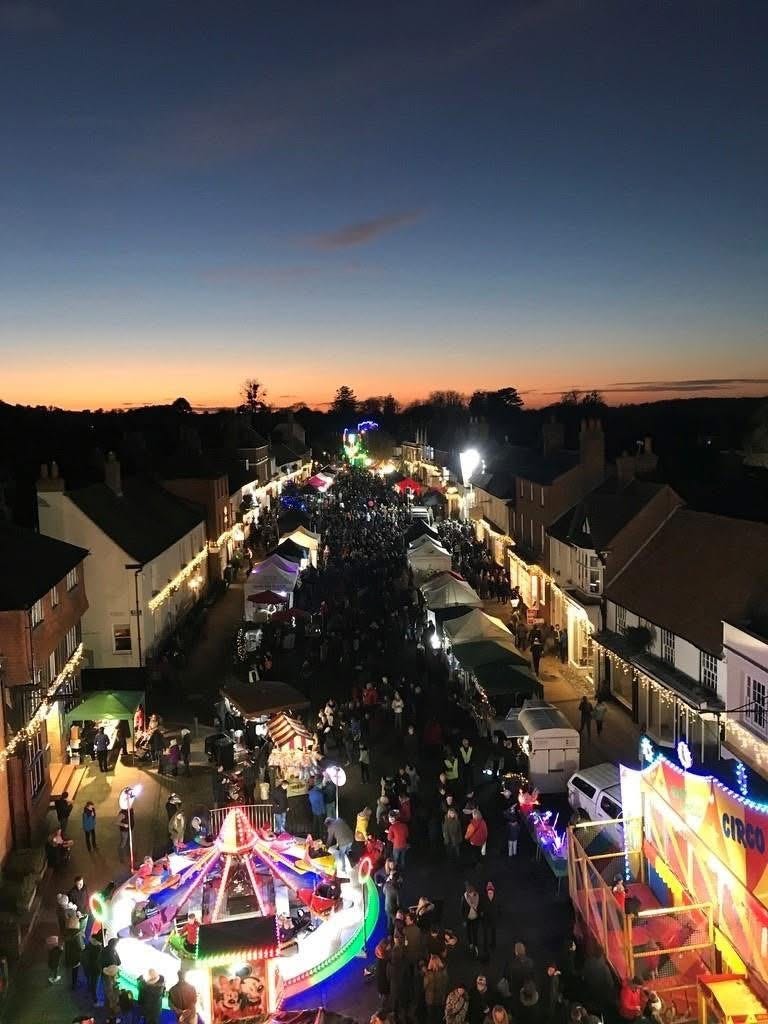The Final Stand - Part 2, Life in Limbo
How We’re Keeping the Farm (and Ourselves) Going
Following the High Court judgement, our small farm has entered yet another period of limbo. This sense of uncertainty is nothing new to us, but as we await the planning inspectorate’s decision on granting us three years of temporary planning permission for a rural worker’s dwelling, the stakes seem higher than ever. With the council’s continued interference at Keeper’s Lodge, we’ve had to move our touring caravan once again. Fortunately, a local pub has allowed us to park it in their car park. It’s far from ideal, but at least we have electricity and it’s conveniently close to my mother’s house, where I can use her facilities and give the boys a bit of freedom beyond the cramped caravan space.
Under normal circumstances, I’d spend my days in our lodge on the farm, working while the children played outside, soaking in the rural environment. Now, though, with our neighbour still lurking behind the curtains and seemingly fixated on driving us away, I can’t risk bringing the boys to the farm. Any “movements” there could see us facing the suspended custodial sentence that looms over us. With this in mind, Matt has been forced to shoulder the farm work alone, while I drift between the caravan and my parents’ house, trying desperately to maintain some semblance of normality and keep our business afloat.
There is at least one small silver lining to our new circumstances: our caravan’s location is near the local canal path. I’ve begun rising early, before Matt and the boys wake, to take our Vizsla, Beau, for a walk. I knew these paths well in my twenties, and there’s a soothing familiarity in their gentle curves and quiet stretches. At that hour, the canal is almost silent. The water is still, fallen leaves lie undisturbed, and the ducks quack softly in protest as Beau—tail high—explores every new scent in the hedgerows. This is my sanctuary, thirty minutes of peace before the day truly begins.
Returning to the caravan, I often find the boys awake, snuggled up next to Matt. Then the crowded choreography of caravan life commences. Matt prepares to leave for the farm, and I attempt to feed the boys and get them dressed in impossibly tight quarters. I miss the days when we fed the pigs together, as a family and being greeted each morning my friendly noses and the hungry grunts of our Saddleback herd. Instead, I now wait for my mother to pick us up once she returns from the gym, so that Hugo can have more space to run around at her house and I can work without tripping over toy tractors and blankets.
With the festive season upon us, we’re heading out to Christmas markets nearly every other day, serving our free-range hog roast. Balancing this with our makeshift living arrangements is no small undertaking. From managing health and safety protocols, sourcing event supplies, and preparing the pork, to overseeing advertising, handling accounts, and organising staff, it feels as though I’m juggling a hundred tasks at once. The weather has been especially cruel this year, forcing the cancellation of over half our bookings due to gales and torrential rain. Still, we press on, knowing that the taste of our high-welfare, free-range pork resonates with customers who care deeply about provenance. It gives me hope to see people reconnecting with their food—understanding the difference between mass production and the careful, compassionate approach we take.
The boys have found it hard to settle in the caravan. Our once-dependable 8pm bedtime has stretched beyond 10pm, particularly on nights when Matt and I return late from events. Taking the boys to my mother’s house during the day helps them nap more peacefully, and gives me the time and space I need to work. I’m also weaving in my responsibilities for Farms Not Factories wherever I can. Recently, 45,000 farmers protested in Whitehall over the government’s decision to remove inheritance tax relief for family farms. Soon, over 300 tractors will roll towards Parliament, demanding fairness. This isn’t just about a tax change—it’s about safeguarding our food security, supporting rural communities, and protecting the environment from soulless industrial farming. Without family farms, we risk becoming reliant on substandard imports, watching traditional practices vanish, and losing the beating heart of rural life altogether.
As the day progresses, I know the routine will repeat itself—juggling the boys’ meals, checking emails from planning consultants or lawyers to ensure no fresh threats have arrived from our council, and making last-minute calls to confirm event bookings. Every day feels like treading a tightrope between two worlds: the gentle, meaningful labour of caring for our animals and raising a family, and the relentless, churning storm of legal battles, planning disputes, and makeshift living arrangements.
And yet, in the midst of all this upheaval, I remember why we’ve held on so fiercely. We believe in what we do—in the quality of the food we produce, in local, sustainable farming, and in the quiet strength that comes from nurturing land and life. I don’t know what the inspector will decide, or how long we’ll remain in a caravan in a pub car park, but I do know that tomorrow morning I’ll return to the canal path. It will be just Beau and me, the world still asleep, the water calm, and the leaves rustling softly. In these small, steady rhythms—an early walk, the laughter of children, the honest taste of ethically raised pork—I find a sense of control amidst chaos. It’s here, in these everyday acts of living and caring, that I muster the strength to keep going, whatever the future may hold.





